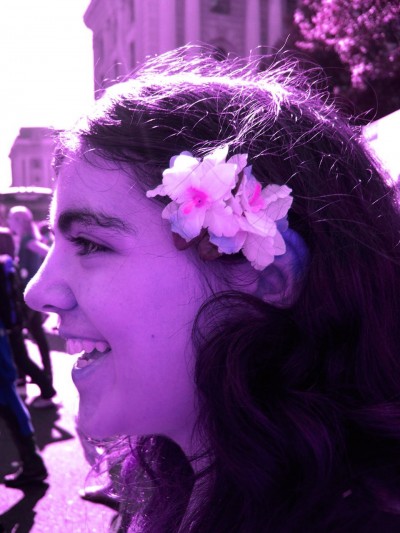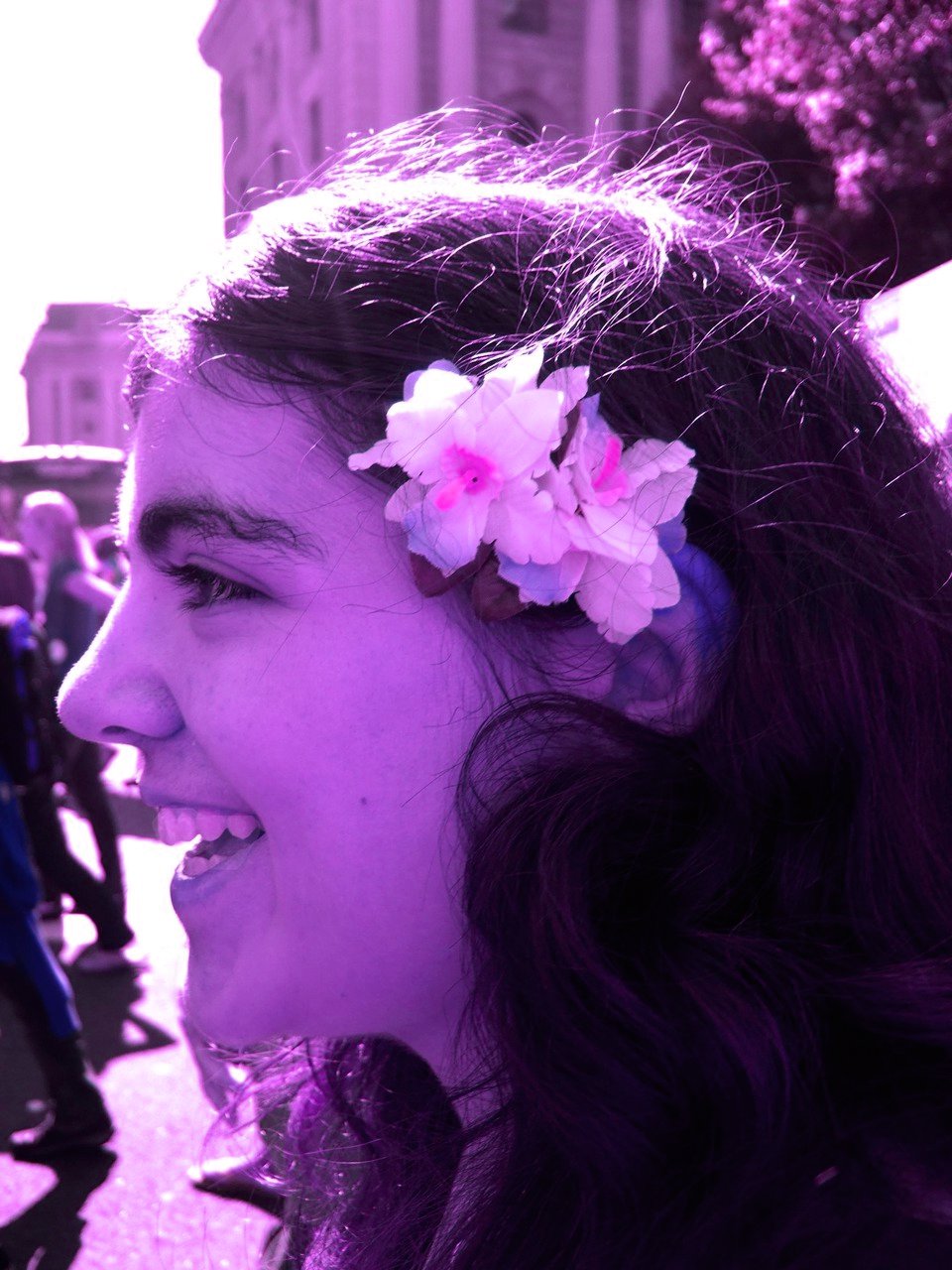
On October 11, 2009, I woke up in my best friend’s apartment at 5 a.m. We had a bus to catch to D.C. We were going to the National Equality March. Before that, though, we had something to do.
Together we’d decided we would come out on Facebook, in honor of the march and National Coming Out Day. But we were in 12th grade at a high school that, despite its location in one of the nation’s most liberal cities, had a pervasive homophobic attitude circulating through many of the students in our grade. So this was our compromise: after years of rumors, we’d do it, we’d come out, but on Facebook and at 5 a.m., when no one else would be awake to see.
Still, checking the “interested in women” box felt like the most terrifying thing I’d done in my entire life.
After that, we left, to join hundreds of thousands of people in the nation’s capital, to demand an end to Don’t Ask Don’t Tell and the Defense of Marriage Act.
There’s no good way to describe how I felt there, a seventeen-year-old bisexual girl, other than that I felt at home amongst people like me. And I felt so optimistic — I felt like the act of being at that march could make a change. As I chanted with everyone else, I started to cry. I wasn’t alone in a crowd. I was part of it.
Then we went back to school.
You probably know this by now, but the Supreme Court ruled today that same-sex marriage is a constitutional right and legal in all 50 states. Six years after the march, five years after Proposition 8 was overturned, four years after New York became the seventh state to legalize marriage equality, the entire country has this right.
And it doesn’t escape my notice that three of the justices who joined the majority opinion — Ruth Bader Ginsburg, Elena Kagan, and Stephen Breyer — are Jewish.
In 2013, a Public Religion Research Institute survey found that 83% of Jewish Americans supported marriage equality — the highest of any religious group surveyed. Of course, each denomination has its own stance. But compare it to the 53% of Americans who supported marriage equality in 2013, and it’s quite clear that Jewish Americans overwhelmingly support marriage equality.
I’ve found that community support to be true at home. In my own Jewish family, I found the room to accept myself. In the familial acceptance of a transgender cousin on his journey, I saw that there was room for me, too.
That being said, there is still so much more to do. This is a victory, but there are others we still need to win — high suicide rates, hate crime and anti-discrimination laws, immigration equality, conversion therapy, and so many more. There are still 29 states where people can be fired for the same marriage they just won the right to.
What we need to do now is take the money and energy that have been going into the marriage fight and direct them to these other issues. Besides just that, we as Jews need to work on intracommunal acceptance. The SCOTUS decision doesn’t mean that everyone will suddenly become accepting of queer people, and that is true in our own communities. Looking back at the history of progressive activism, you’ll see Jews at the forefronts of many movements. We have to honor this legacy for ourselves as well as for others.
So I encourage you, my fellow LGBTQ Jews: celebrate today. Celebrate this victory. And then take that spirit, that optimism, that passion, and bring it back to your community. Keep fighting.
Things have changed so much — for me, and for this country — in the last six years. There’s still more change to come. The fight for equality isn’t over, in our government or in our homes.
Chloe Sobel graduated from Queen’s University and is editor in chief of New Voices.

